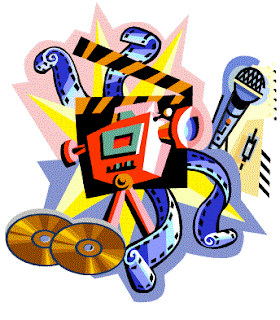If you dream of making a qualitative change in the people's life, bringing into light the dark side of the society, have the patience to get along with politicians, bureaucrats, criminals and a myriad of persons desperate to get some ready to rush to work at odd hours, do night shifts; Journalism is one of the best careers to pursue.
Journalism as such is more than a career, it's a mission. A mission that generates your creativity helps you socialize, earn name along with your livelihood, bring to the forefront problems facing the society and help implement the possible solutions. These inherent advantages of journalism attract a lot of young graduates.
Scope and Areas of Work in Print Media
Print Media is the oldest form of media. But even today it is growing from strength to strength. Around 4000 small, medium and large newspapers and magazines across the county are registered with the Registrar of Newspapers every year. This indicates that it is a growing sector where employment opportunities are increasing with each passing day.
Most of the young aspirants who want to enter the print media prefer reporting, but newspapers and magazines also seek young talent as photographers, artists, editors, computer experts, librarians, and cartoonists. Students who have writing ability, graphics or photo skills, curiosity and determination and who are well prepared by education and training have less difficulty in finding a good opening in the print media. The well known areas to work are:
Editing ? Editing means to plan the contents of the publication and to supervise its preparation. Newspapers have Editors who should have sound knowledge of newspaper laws. They need to put forward innovative ideas and establish the style of the publication. Editors must be able to coordinate the efforts of a team. They must possess a sound knowledge of their market, and take the initiative in looking for new authors and new subjects. In very large newspapers, there are associate or assistant editors who are responsible for particular topics, such as sports, international news, local news, supplements, special pullouts, etc. Administrative duties of editors include hiring writers, planning budgets and negotiating contracts with freelance writers.
Newspapers also have a large number of sub-editors whose job is to give a final shape to the story submitted by a reporter. Sub-editors acts almost like a gate keeper ? editing, reformatting, objectively presenting each report, keeping in mind the general policy of the newspaper. They must be able to identify potential doubts, complications and mistakes in the text, inconsistencies or lack of adherence to the style of newspaper.
Reporting ? Reporting in Newspapers and Magazines means to file stories about local, state, national and international events; to present different view points on current issues and to monitor the actions of public officials and others who exercise power. Newspapers frequently station reporters known as correspondents in large cities and in other countries to prepare stories on major news events occurring in these locations.
Freelancing ? One can also work as a freelance journalist for newspapers and magazines. Freelancers are not the regular employees of the organization. They are paid according to each piece or article they write.
Writing Columns ? A newspaper appoints specialists for regular columns. Columnists, being assigned a column, have to keep contributing to the column on a regular basis.
Writing Comments ? Well known people, who are authorities in their respective fields, are invited to write on topical issues in magazines or newspapers.
Drawing Cartoons ? A comical or satirical sketch on political, cultural events is the job of a cartoonist. While established cartoonists work for some big groups, others are generally free lancers.
Working as an Artist - Illustrators and cartographers who specialize in maps and charts to illustrate data work in this medium.
Photojournalism ? Photojournalism is an art to tell a story with pictures. People having an interest in photography with an ability to link it with a news story can work for newspapers and magazines as a photojournalist.





















